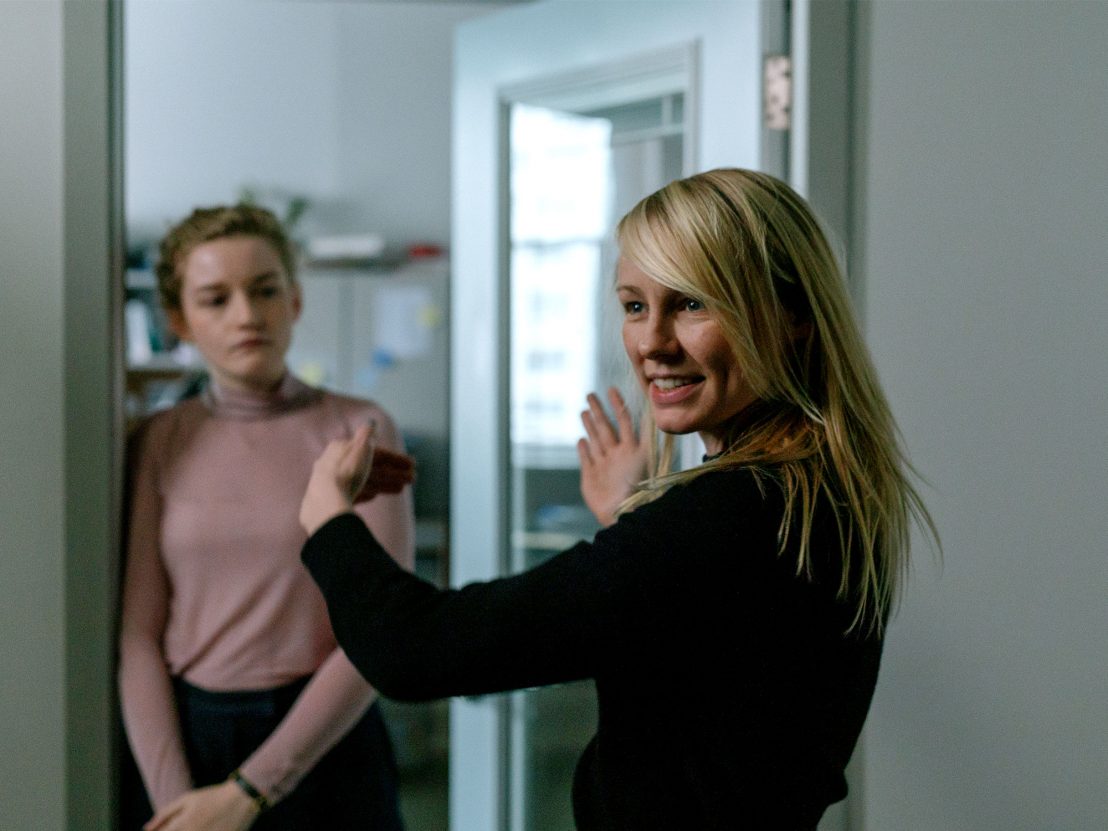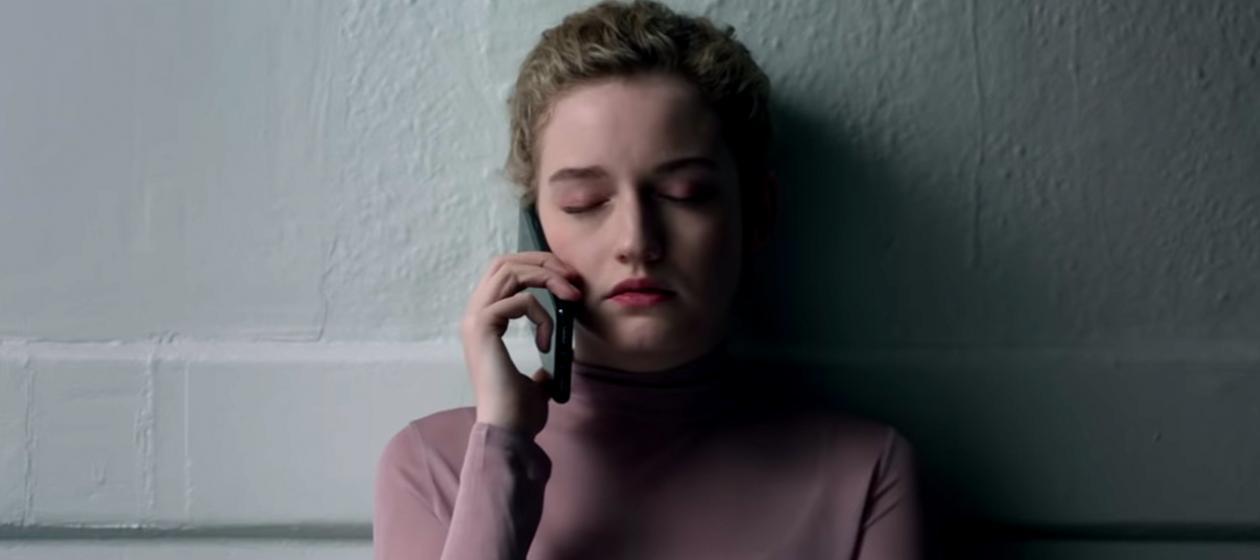Those subtle mundane silences, the lapses in communication, the frayed thoughts, the million little anxieties, the thousand envelope-induced paper cuts can deliver quite a lethal dose when compiled together. They become palpable in Kitty Green’s debut dramatic feature film, “The Assistant”. Enacted under the flat shimmer of the fluorescent office bulbs, these minute transgressions accumulate to the point of claustrophobia. The caustic environment confines you, trapped within an impenetrable cubicle-shaped cell until the sensation to scream rushes over you. The terrifying part is that this scream has no sound.
The most significant achievement of Green’s enthralling film is that it places the viewer squarely within the perspective of the victim in a nearly seamless manner. It emotes feelings of isolation and misguided obliviousness that some viewers can hardly have claimed to ever experience prior. The world of “The Assistant”, working within the stifling confines of the noxious corporate environment of the pre-Me Too world, is an inherently grim one. In equal measures revolting and petrifying, this film is an eye-opening experience to the truth of an untold story. The trouble that bubbles up with every shot of monotonous office maneuvering is that a culture as toxic as this cannot merely be washed away with the simple righting of a few wrongs, rather the overarching mindset must be fundamentally reconstructed.

The contrasts are dire in “The Assistant”, in those moments of relentless silence – the floors and furniture are being cleaned, copies made, crumbs swept away – the humdrum reality of this supposed prestigious position rears its frightful head. Green is contrasting the perceived excitement of filmmaking to the tedium of Jane’s (Julia Garner) day-to-day life. She graduated from North Western University with a 3.9 GPA, she is considered to be “very good” at what she does, but that’s not enough. There’s a difference between right and wrong, safety and security, acceptable and vile. But still, nearly everyone Jane encounters does not seem to comprehend that. This is especially brought out in the few interior elevator shots in which Jane stands firm and forthright, centered, and staring straight at the viewer. Those around her are oblivious to their surroundings, eyes transfixed upon their phones, not even bothering to gaze up once.
The underlying tension becomes tangibly displayed across the screen at the moment when Jane feels completely isolated, with nowhere to seek refuge other than the HR Manager’s office. Slimily played by Matthew MacFadyen, seemingly plucked straight from his role as the sordid Tom Wambsgans in HBO’s “Succession”, the HR manager perpetuates all of those unstated fears and leaves the audience with mouths agape. His feigned interest in the truly troubling circumstances that have unfolded severely propels forward the urgency of the issues with which this film is grappling. The point is affirmatively laid bare for all to see in the malignant indifference of those in a position of influence, as those with the power to affect change chose to turn a blind eye.
The story unfolds in a matter of gestures and facial expressions. Played straight-faced, Kitty Green allows the viewer to fend for his or herself and experience the unbridled anxiety of it all. Jane is trapped and unable to react, therefore her deep and profound emotion in this matter must be confined to a glance or an expression of incredulity, a momentary lapse in the veneer which quickly evaporates. It overtakes her in the heart-wrenching last few frames of the film and this is not simply a singular story of a fictional individual, but that of many who have long been nameless and faceless. Their choice has been to keep the depraved secrets of the powerful or commit what might be termed as “career-suicide”. In what realm of reality is this acceptable or even fathomable? Sadly, the answer has long-been our own.

In summation, the film is above all else saturated in meaning, searing with urgent commentary. It trusts its audience to substantiate it, in a minefield of a workday the subtleties linger with those who are on the receiving end of them. The overall impact that Green is attempting to convey in this film is that when taken on a whole these subtleties tend not to be so tenuous, on the contrary, their impact is rather direct and crucial.
The practical production design and minimalistic cinematography allow the anxieties to boil up to a fever pitch and they never relent. The aesthetic of “The Assistant” melds the subjects of each frame into their surroundings, displaying just how these blatant misgivings simply go unnoticed in such an environment. Most impressively, the film never once gives the impression of talking down to its audience, it entrusts them with a wide range of emotions, and those who are in tune receive the transmission with crystalline affirmation. Those who fail to are simply proving Green’s point. If we pay attention to our surroundings and act more thoughtfully then maybe our actions need not be so detrimental.


Thank you ..a wonderful write up review.
⭐️⭐️⭐️⭐️ Writer and site.
⭐️⭐️⭐️⭐️⭐️
Upon reading Joseph Romano s review I decided to rent My Assistant … On the mark and outstanding review.
5 star